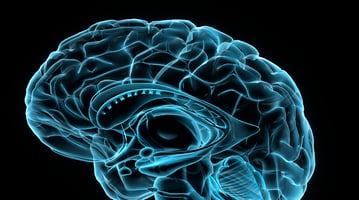While the long-term use of most antidepressants does not appear to increase the risk of dementia,...
Short-Term Menopausal Hormone Therapy Does Not Affect Long-Term Cognition, Study Finds

Short-term menopausal hormone therapy does not appear to have any long-term cognitive effects, either positive or negative, according to a study published yesterday in PLoS One.
The study findings were part of a long-term follow-up of participants in the Kronos Early Estrogen Prevention Study (KEEPS), in which women in early postmenopause and with good cardiovascular health were randomized to four years of oral estrogen, transdermal estradiol, or placebo. At the end of four years, no cognitive benefit or harm was seen in women who received estrogen compared with those who received placebo.
For the follow-up study, Carey Gleason, Ph.D., M.S., of the University of Wisconsin-Madison, and colleagues brought back 275 KEEPS participants after the original study ended—over a range of eight to 14 years. The women completed the same cognitive tests as years before, including an assessment of global cognitive function along with 11 tasks spanning four cognitive domains: verbal learning and memory; auditory attention and working memory; visual attention and executive function; and speeded language and mental flexibility.
The researchers identified no significant differences in global cognition or any of the four domains between women who had taken either hormone treatment and those who did not—both in the head-to-head performance during follow-up and in the change in cognition from original study to follow-up. A secondary analysis that excluded 40 women who continued to take hormone therapy after KEEPS found similar results.
These findings “may reassure women opting to use hormone therapy in early menopause, to manage menopausal symptoms, that 4 years of therapy started within 3 years of menopause had no long-term deleterious impact on cognition,” Gleason and colleagues wrote. “Our results also indicate that [hormone therapy] does not prevent cognitive decline when initiated around the time of menopause. Therefore, [hormone therapy] should not be recommended as a strategy for improving or preserving cognitive function in recently menopausal women with low cardiovascular risk.”
For related information, see the Psychiatric News Alert “Hormone Therapy May Reduce Relapse Risk for Menopausal Age Women With Schizophrenia.”
(Image: Getty Images/iStock/AndreyPopov)
Don't miss out! To learn about newly posted articles in Psychiatric News, please sign up here.





